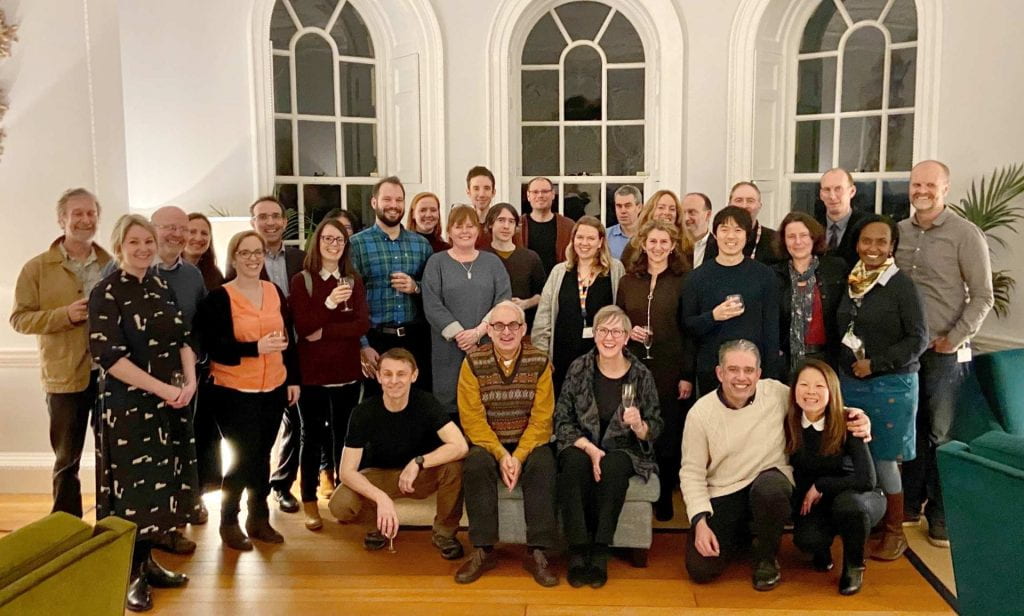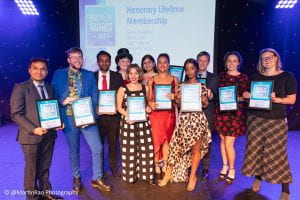By Professor Judith Squires, Deputy Vice-Chancellor and Provost
It was a great pleasure to mark the first in the 2020 series of Provost Celebrations of Academic Achievement by welcoming colleagues to Royal Fort House to celebrate our Global Challenges Research Fund (GCRF) successes on 16 January.

The GCRF is an initiative driven by the United Nation’s ‘2030 Agenda for Sustainable Development’, which has at its heart 17 Sustainable Development Goals. These goals represent a blueprint to achieve a better and more sustainable future for all. In response to the 2030 Agenda, the Government published its aid strategy which aims to:
-
-
- address global challenges through disciplinary and interdisciplinary research;
- strengthen capability for research and innovation, with developing countries and the UK; and
- enable an agile response to emergencies and opportunities.
All GCRF research projects must also focus on delivering benefits and outcomes which promote the welfare and economic development of Lower and Middle Income Countries (LMICs).
We have been extremely successful in securing funding via this scheme here at the University of Bristol. This success was facilitated by the early development of Bristol’s Global Challenges strategy, which Research England commended to other higher education institutions (HEIs) to encourage best practice, acknowledging the excellence and effort demonstrated by Bristol’s approach. The strategy was been expertly supported by our Global Challenges Steering Group, composed of experts in Official Development Assistance, with representation from Bristol’s Research Institutes and Faculty Research Directors. Their guidance has been invaluable – and is much appreciated.
As a result of our strategy, the University has been incredibly successful in attracting funding from the GCRF, with a success rate above 40%, and around £2 million a year coming in via QR funding (quality-related research funding, determined by the periodic assessment of HEIs) to support the activities outlined in the strategy. Since 2016, we have secured over 130 external awards worth more than £30 million. Two examples include:
- Professor Matthew Avison received £1.8m to lead the One Health Drivers of Antibacterial Resistance in Thailand (OH-DART) consortium. Working with colleagues at the Universities of Exeter and Bath, Mahidol University, Chulabhorn Research Institute and the NERC Centre for Ecology and Hydrology. The consortium’s aim is to define and prioritise the drivers of antibacterial drug resistance in humans in the community in Thailand, taking a multi-disciplinary approach.
- Professor Leon Tikly and partners from India, Rwanda, Somalia and South Africa have received £4.65m to Transform Educations Systems for Sustainable Development. The aim of this research is to develop an understanding of how education systems can act as drivers of sustainable development.
Many congratulations to everyone – academics and professional services – involved in these projects, and all the 130 projects, secured since 2016. Congratulations too to Professor Helen Lambert, who has been appointed as Global Challenge Leader for Health on a part-time secondment to UKRI to March 2021.
The event last week was held as a small ‘thank you’ to all those colleagues who have worked so hard to obtain these important GCRF funding awards and to help pursue the sustainable development goals. May our success in addressing the global challenges identified in the 2030 agenda for sustainable development continue.
-



